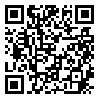Volume 5, Issue 1 (6-2018)
Human Information Interaction 2018, 5(1): 30-43 |
Back to browse issues page
Download citation:
BibTeX | RIS | EndNote | Medlars | ProCite | Reference Manager | RefWorks
Send citation to:



BibTeX | RIS | EndNote | Medlars | ProCite | Reference Manager | RefWorks
Send citation to:
Shaghaghi M. A Conceptual Analysis of Epistemological Pre-assumptions of Floridi’s Theory of Information Ethics . Human Information Interaction 2018; 5 (1)
URL: http://hii.khu.ac.ir/article-1-2737-en.html
URL: http://hii.khu.ac.ir/article-1-2737-en.html
Shahid Beheshti University
Abstract: (8229 Views)
Background and Aim: This paper aims at conceptual analysis of epistemological pre-assumptions of the theory of “Information Ethics” to provide better understanding about this macro-ethics theory and offer a critical standpoint about some of its pre-assumptions.
Methods: A documentary method and a conceptual analysis were used. This research method and approach is best suited to explore pre-assumptions of philosophical standpoints and scientific concepts.
Results: Floridi’s epistemological position in the theory of “Information Ethics” is pan-informationism. This position originates from his “Informational Realism”. He argues that the ultimate nature of knowledge is structural. Structures, rather than entities, in his view, is aPriori and primal. He uses a metaphysical concept, namely “difference”, to argue for his position. In his view, in the existence of an object, the structure of “difference” is primal to the entity of that object because without difference, entities substantially could not be recognized. By this reasoning, he argues that we can see all things as information because all structures can be translated to data clusters in a selective level of abstraction. By viewing every things as information, they gain at least a minimum right to “being” that should be respected because the first informational structure of an entity is being/not being binary.
Conclusion: The value of this research lies in the exploration and explanation of epistemological assumptions of Floridi’s information ethics theory who tried to determine all objects as information to ethically save them from damage, by metaphysical development of the concept “difference”. This article also showed that how this conceptual development is obscure because of its epistemological reductions, emphasis on mind and neglecting bodies, and technological flexibility
Methods: A documentary method and a conceptual analysis were used. This research method and approach is best suited to explore pre-assumptions of philosophical standpoints and scientific concepts.
Results: Floridi’s epistemological position in the theory of “Information Ethics” is pan-informationism. This position originates from his “Informational Realism”. He argues that the ultimate nature of knowledge is structural. Structures, rather than entities, in his view, is aPriori and primal. He uses a metaphysical concept, namely “difference”, to argue for his position. In his view, in the existence of an object, the structure of “difference” is primal to the entity of that object because without difference, entities substantially could not be recognized. By this reasoning, he argues that we can see all things as information because all structures can be translated to data clusters in a selective level of abstraction. By viewing every things as information, they gain at least a minimum right to “being” that should be respected because the first informational structure of an entity is being/not being binary.
Conclusion: The value of this research lies in the exploration and explanation of epistemological assumptions of Floridi’s information ethics theory who tried to determine all objects as information to ethically save them from damage, by metaphysical development of the concept “difference”. This article also showed that how this conceptual development is obscure because of its epistemological reductions, emphasis on mind and neglecting bodies, and technological flexibility
Keywords: Information Ethics, Lociano Floridi, Informational Realism, Structural Realism, Constructionism, Level of Abstraction, Entropy
Send email to the article author
| Rights and permissions | |
 | This work is licensed under a Creative Commons Attribution-NonCommercial 4.0 International License. |






